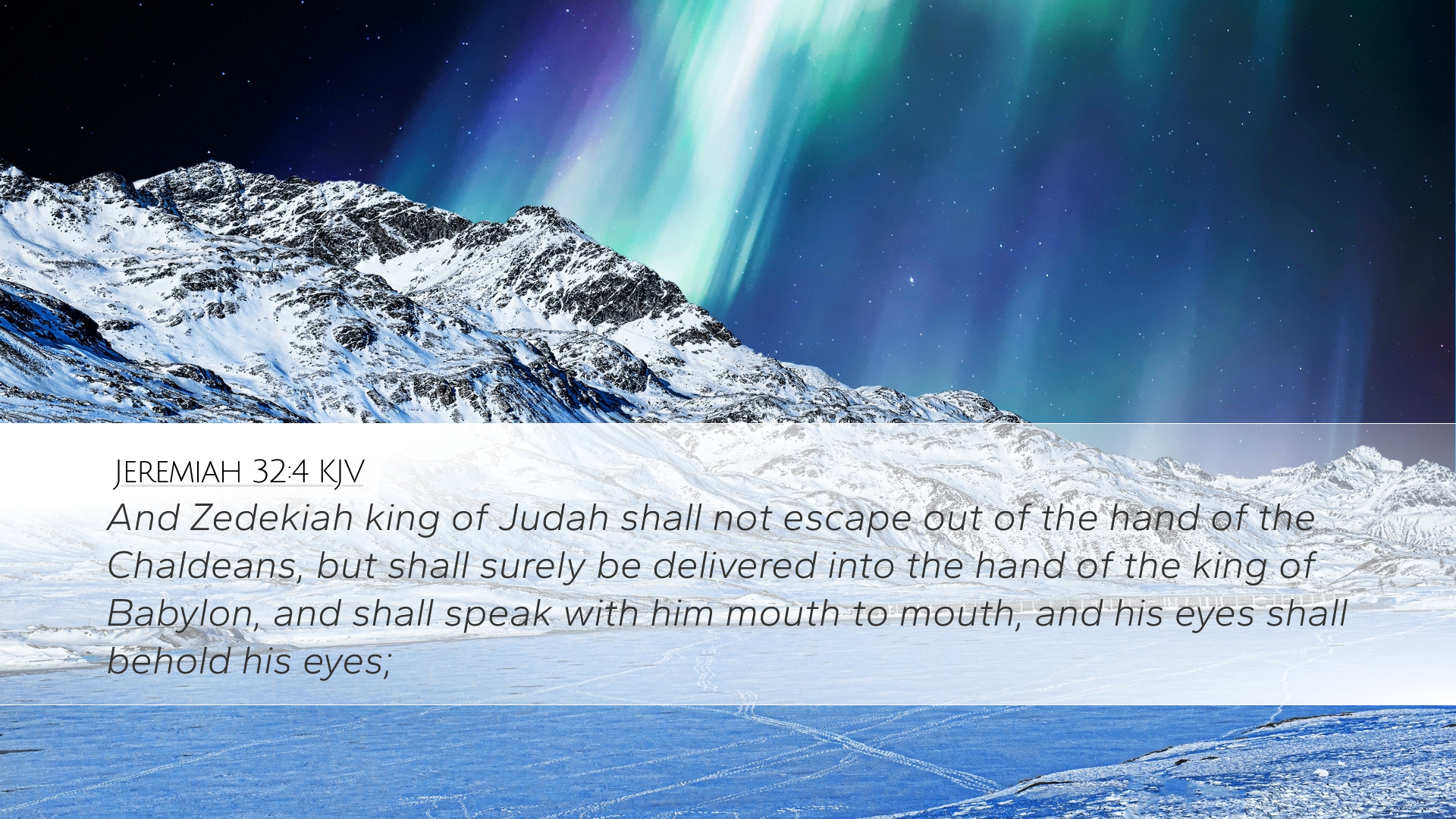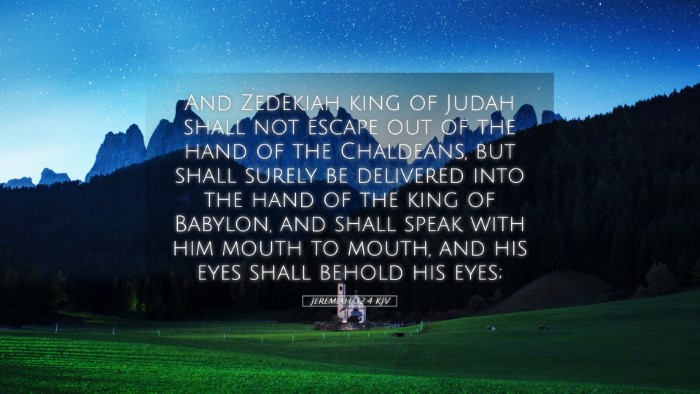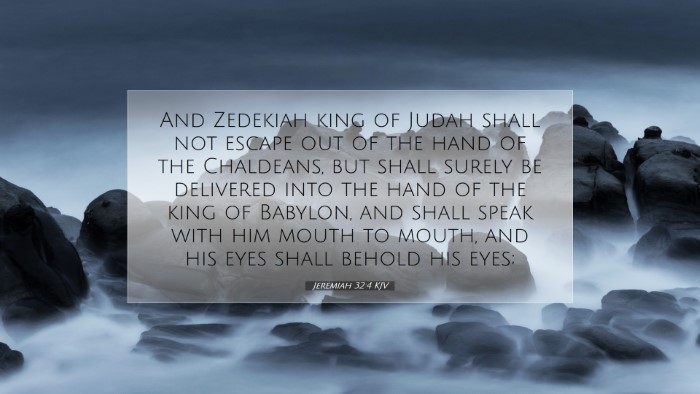Commentary on Jeremiah 32:4
Jeremiah 32:4 states, "And Zedekiah king of Judah shall not escape out of the hand of the Chaldeans, but shall surely be delivered into the hand of the king of Babylon, and shall speak with him mouth to mouth, and his eyes shall behold his eyes." This verse presents a sobering prophecy regarding the fate of Zedekiah, the last king of Judah, who was destined to face the consequences of his actions amidst the impending Babylonian captivity. The following commentary incorporates insights from public domain sources to deepen our understanding of this critical passage.
Contextual Analysis
The historical backdrop of Jeremiah 32 reveals a tumultuous period in Judah's history. The Babylonian empire, under King Nebuchadnezzar, was poised to conquer Jerusalem, and Jeremiah was known as the prophet who lamented this impending doom. Matthew Henry notes that Zedekiah's reign was marked by both spiritual and political failure, illustrating the broader themes of judgment and the fulfillment of prophetic words.
The Nature of Prophecy
Adam Clarke emphasizes the certainty and authority of the prophetic message delivered by Jeremiah. The phrase "shall not escape" signifies that Zedekiah's fate is sealed; there is no possibility for mitigation or redemption. Clarke elaborates that God's sovereignty over worldly rulers is paramount, asserting that Zedekiah's attempts to side with Egypt in a futile bid for independence ultimately resulted in his downfall.
The Significance of 'Mouth to Mouth'
The phrase "speak with him mouth to mouth" points to an intimate confrontation between Zedekiah and Nebuchadnezzar. Albert Barnes interprets this as Zedekiah being brought into direct communication with his captor, emphasizing Zedekiah's humiliation. This moment symbolizes not only the loss of political power but also the stark reality of facing one's consequences directly. The intimate nature of this exchange serves as a stark reminder of the inescapable judgment pronounced upon him.
The Role of Judgment in God’s Plan
The predictions of judgment throughout Jeremiah highlight God's righteousness. Henry asserts that God's patience had been exhausted by the persistent idolatry and rebellion of Judah. Zedekiah himself exemplifies the tragic outcome of rejecting divine guidance. His failure to heed prophetic warnings illustrates the folly of ignoring God's word, emphasizing an essential lesson for contemporary believers about the importance of obedience and vigilance.
Application for Modern Readers
This verse serves as a poignant reminder for leaders today. Pastors and theologians may reflect on how Zedekiah’s choices resonate with contemporary challenges within church leadership. The call to faithfulness is underscored by his failure, suggesting that faith leaders must diligently pursue righteousness and heed divine instruction, lest they suffer similar fates.
Theological Reflections
The prophetic judgment upon Zedekiah resonates theologically by signaling the inevitability of divine justice. The text is a cornerstone for discussing God's dealings with nations and leaders. Clarke points out that Zedekiah's experience illustrates the conflict between human desires for power and divine ordination. This brings forth questions concerning the nature of free will, the exercise of human authority, and the overarching plan of God in history.
Conclusion
The rich insights from Matthew Henry, Albert Barnes, and Adam Clarke consolidate a deeper understanding of Jeremiah 32:4, unveiling layers of meaning that resonate with themes of prophetic revelation, human accountability, and divine judgment. For pastors, students, and theologians, this commentary directs attention to the enduring relevance of prophetic scripture in understanding both ancient and modern contexts. It invites reflection on the necessity of fidelity to God amidst the complexities of leadership and governance.


